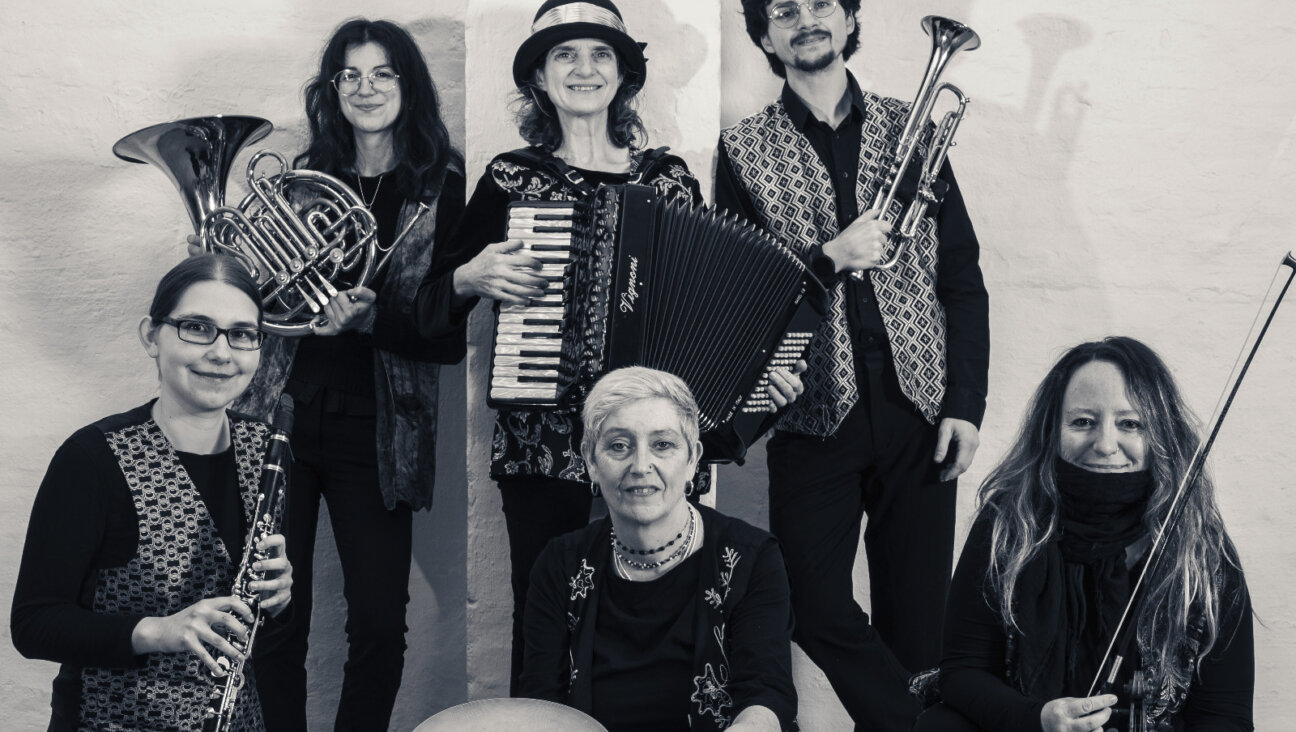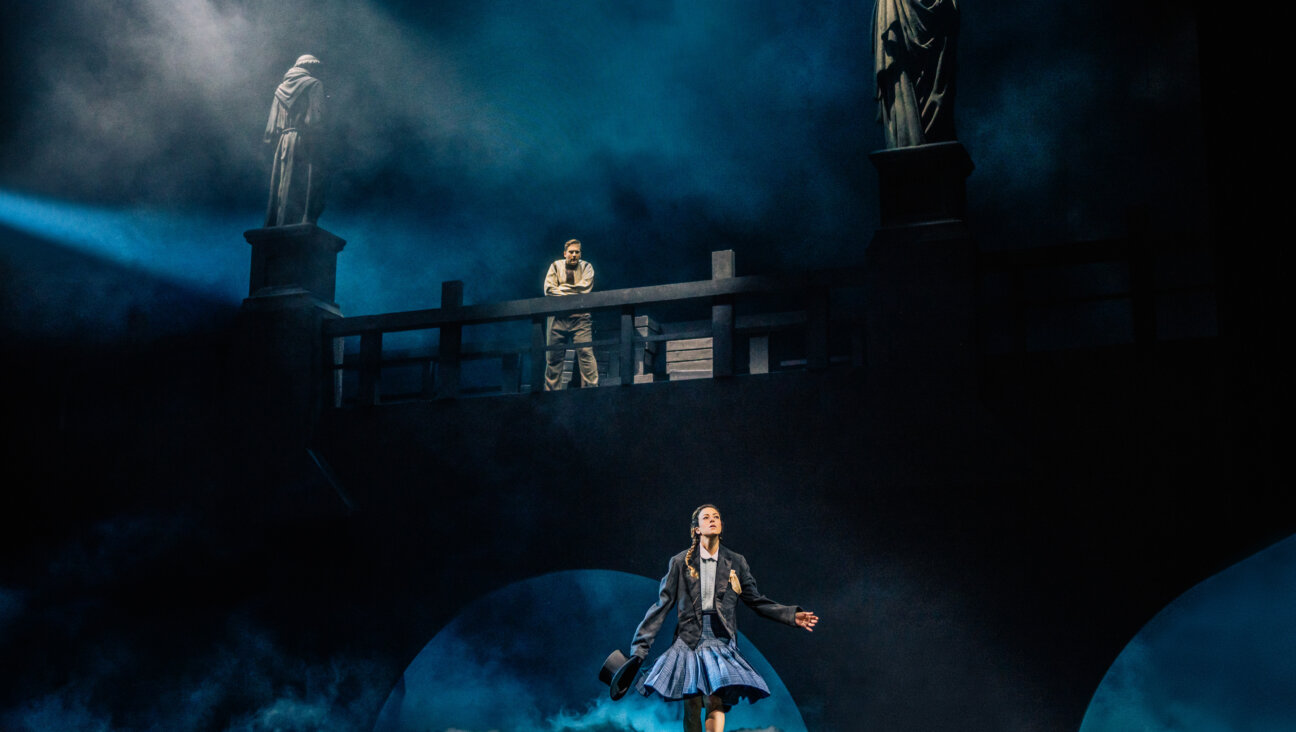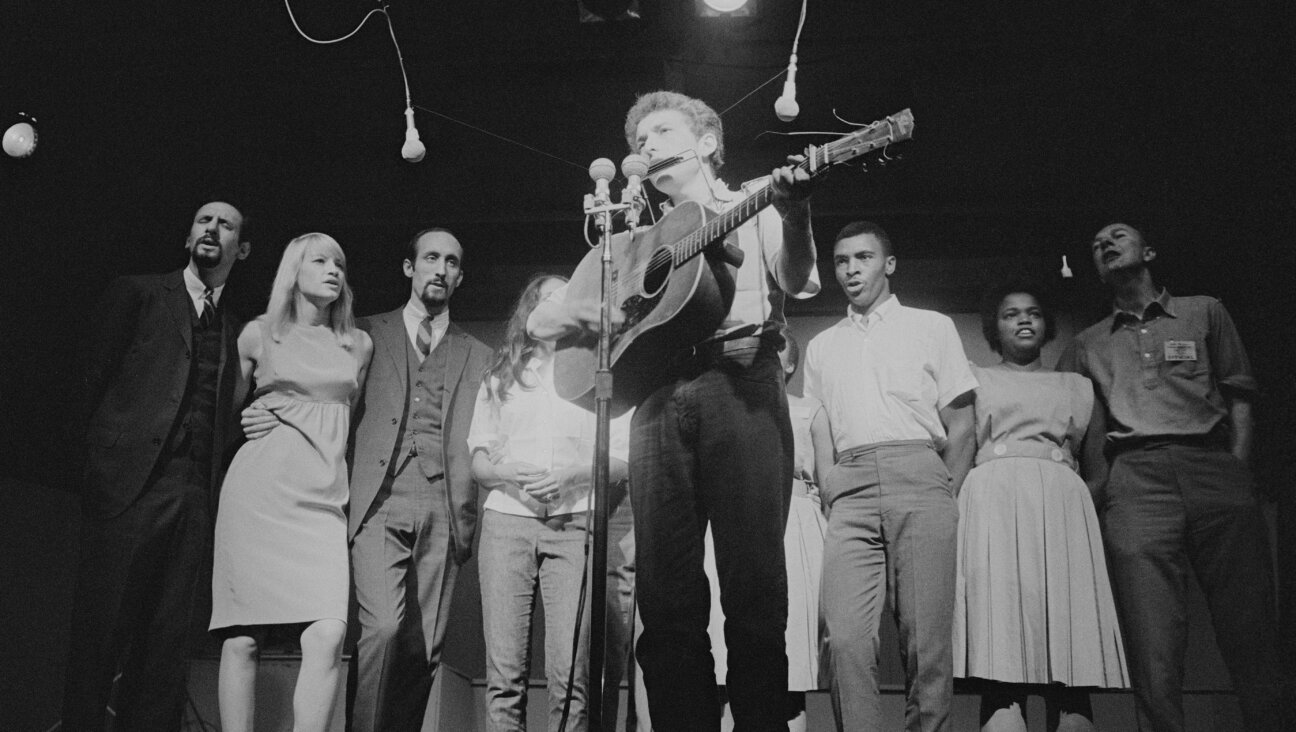Can Polyglot Odessa Avoid Stain of Separatist Massacre?

Image by getty images
(Reuters) — Odessa: the very name conjures up an archetypal melting pot, a balmy oasis of tolerance and diversity, as well as a tsarist port of imperial grandeur, immortalised in film.
But can a city forever associated with a massacre of civilians more than a century ago now avoid becoming known as the place where Ukraine’s regional unrest sparked into nationwide conflict?
The monumental Potemkin Steps that sweep from Odessa’s elegant centre to the port, named for their central role in Sergei Eisenstein’s Soviet propaganda film “The Battleship Potemkin”, should be bustling with tourists and sailors.
Instead, less than a week after at least 37 pro-Russian activists died in a burning building following street fighting with soccer supporters chanting anti-Russian slogans, the steps are all but deserted, and Odessa fears for its identity, both as Ukraine’s main civilian port and as a haven of tolerance.
“This time last year, this place was packed with tourists and sailors. Now there’s no one to buy postcards and souvenirs,” said Valentin Popov, 68, shuffling a handful of postcards. “They would all come to see the Steps.”
The images from “The Battleship Potemkin” – a baby carriage bumping down the steps amid crowds fleeing the guns of tsarist soldiers in Russia’s 1905 revolution, a mother falling to the ground dying – are among the most famous in cinema history.
“Ukraine is like that helpless child in the carriage rolling down the steps,” said Popov.
He meant that the pro-Western forces that toppled Ukraine’s pro-Russian president in March have been powerless to stop Russia seizing Ukraine’s Crimean peninsula, just up the Black Sea coast, or to prevent well-armed militias taking control of large parts of mostly Russian-speaking eastern Ukraine, with Moscow’s troops poised just across the border.
Odessa – known for its mix of Russians and Ukrainians, Arabs and Armenians, Georgians and Bulgarians, Jews and Tatars – has always felt “different”, immune to simplistic prejudice and intolerance – albeit that its large Jewish community suffered repeated pogroms in the 19th century.
“PROUD OF DIFFERENCES”
It may be predominantly Russian-speaking, unlike much of western Ukraine, but the idea that it could now become the scene of a conflict of nationalities is anathema to most of its citizens.
Maria Popova, editor-in-chief of a Bulgarian language newspaper and a parliamentary deputy for the Party of Regions, formerly headed by Yanukovich, said there were 133 nationalities, “proud of their differences”, living in and around the city of a million people.
“Odessa knew nothing about bloodletting,” she said. “We have to seek compromise … otherwise there will be a civil war.”
Odessa was a small Muslim Tatar settlement until Empress Catherine the Great founded a city there in 1794 that went on to become the fourth largest in 19th-century imperial Russia, and for much of that time a free port.
One of Kiev’s greatest fears is that Russian forces could sweep east to seize the entire Black Sea coast, leaving Ukraine landlocked. Just to lose control of Odessa, with its two ports including a major oil terminal, would be a huge blow.
Russian President Vladimir Putin, accused by the West of fomenting separatism in the east, has for his part said he has no territorial designs on Ukraine beyond Crimea, and pledged on Wednesday to do everything he could to ease tensions in Ukraine.
But chants of “Odessa is a Russian city!” by demonstrators last weekend have alarmed many.
Odessa’s new regional governor, Ihor Palytsa, installed after Kiev sacked the entire police command and district leadership, said on taking office that he did not come “wielding a sword”, and announced the creation of a round table to resolve differences.
“Our task is to demonstrate that everyone – Ukrainians, Russians and foreigners – can live in Odessa,” he said.
For now at least, the violence has died down, and there has been no sign of it spreading outward like the unrest rippling across eastern Ukraine.
But life is still far from normal in the city of tree-lined boulevards and grand architecture ranging from Russian imperial to Italianate, French and neo-classical.
LIFE ON HOLD
A concert on the Potemkin Steps and dancing on the seaside promenade, intended to mark the anniversary of victory in World War Two, have been cancelled. Authorities fear the occasion, which raises questions over Ukraine’s relationship with its former imperial master to the north, could stir fresh violence.
The Ukrainian interior minister has also asked that, for the rest of the 2014-2015 season, Odessa’s professional soccer teams, among others, should move their matches to other less volatile cities, and bar spectators from the stadiums.
Last Friday’s violence, involving gunfire and petrol bombs, broke out after supporters of two teams marched through town chanting anti-Russian slogans and tangled with pro-Russian activists.
Kiev has dispatched a special police unit based on “civil activists” to Odessa to replace the local command, which authorities said had not only tolerated but collaborated with militants.
Fishel Chichelnitsky, a rabbi with the 70,000-strong Jewish community and a native of Odessa, said last week’s violence had been a huge shock. “I did not believe this could happen … we are praying this never happens again.”
Ghanem Fayad, 35, who fled his hometown of Homs in Syria three years ago to find refuge in Odessa and its 10,000-strong Arab community, was pinning his hopes on the West.
“Syria was far away; the European Union is at Ukraine’s doorstep and Europe will not be able to handle millions of refugees if a major conflict starts – that’s why they will do everything to contain this.”
Tigran, a 28-year-old ethnic Armenian who sells sunglasses at a stand in downtown Odessa, said that, “if they just leave us alone”, the city would find its own solutions.
“We can sit down and talk this over, we can find understanding,” he said. “This is Odessa’s way – we talk and we shake hands and we go on.”Odessa: the very name conjures up an archetypal melting pot, a balmy oasis of tolerance and diversity, as well as a tsarist port of imperial grandeur, immortalised in film.
But can a city forever associated with a massacre of civilians more than a century ago now avoid becoming known as the place where Ukraine’s regional unrest sparked into nationwide conflict?
The monumental Potemkin Steps that sweep from Odessa’s elegant centre to the port, named for their central role in Sergei Eisenstein’s Soviet propaganda film “The Battleship Potemkin”, should be bustling with tourists and sailors.
Instead, less than a week after at least 37 pro-Russian activists died in a burning building following street fighting with soccer supporters chanting anti-Russian slogans, the steps are all but deserted, and Odessa fears for its identity, both as Ukraine’s main civilian port and as a haven of tolerance.
“This time last year, this place was packed with tourists and sailors. Now there’s no one to buy postcards and souvenirs,” said Valentin Popov, 68, shuffling a handful of postcards. “They would all come to see the Steps.”
The images from “The Battleship Potemkin” – a baby carriage bumping down the steps amid crowds fleeing the guns of tsarist soldiers in Russia’s 1905 revolution, a mother falling to the ground dying – are among the most famous in cinema history.
“Ukraine is like that helpless child in the carriage rolling down the steps,” said Popov.
He meant that the pro-Western forces that toppled Ukraine’s pro-Russian president in March have been powerless to stop Russia seizing Ukraine’s Crimean peninsula, just up the Black Sea coast, or to prevent well-armed militias taking control of large parts of mostly Russian-speaking eastern Ukraine, with Moscow’s troops poised just across the border.
Odessa – known for its mix of Russians and Ukrainians, Arabs and Armenians, Georgians and Bulgarians, Jews and Tatars – has always felt “different”, immune to simplistic prejudice and intolerance – albeit that its large Jewish community suffered repeated pogroms in the 19th century.
“PROUD OF DIFFERENCES”
It may be predominantly Russian-speaking, unlike much of western Ukraine, but the idea that it could now become the scene of a conflict of nationalities is anathema to most of its citizens.
Maria Popova, editor-in-chief of a Bulgarian language newspaper and a parliamentary deputy for the Party of Regions, formerly headed by Yanukovich, said there were 133 nationalities, “proud of their differences”, living in and around the city of a million people.
“Odessa knew nothing about bloodletting,” she said. “We have to seek compromise … otherwise there will be a civil war.”
Odessa was a small Muslim Tatar settlement until Empress Catherine the Great founded a city there in 1794 that went on to become the fourth largest in 19th-century imperial Russia, and for much of that time a free port.
One of Kiev’s greatest fears is that Russian forces could sweep east to seize the entire Black Sea coast, leaving Ukraine landlocked. Just to lose control of Odessa, with its two ports including a major oil terminal, would be a huge blow.
Russian President Vladimir Putin, accused by the West of fomenting separatism in the east, has for his part said he has no territorial designs on Ukraine beyond Crimea, and pledged on Wednesday to do everything he could to ease tensions in Ukraine.
But chants of “Odessa is a Russian city!” by demonstrators last weekend have alarmed many.
Odessa’s new regional governor, Ihor Palytsa, installed after Kiev sacked the entire police command and district leadership, said on taking office that he did not come “wielding a sword”, and announced the creation of a round table to resolve differences.
“Our task is to demonstrate that everyone – Ukrainians, Russians and foreigners – can live in Odessa,” he said.
For now at least, the violence has died down, and there has been no sign of it spreading outward like the unrest rippling across eastern Ukraine.
But life is still far from normal in the city of tree-lined boulevards and grand architecture ranging from Russian imperial to Italianate, French and neo-classical.
LIFE ON HOLD
A concert on the Potemkin Steps and dancing on the seaside promenade, intended to mark the anniversary of victory in World War Two, have been cancelled. Authorities fear the occasion, which raises questions over Ukraine’s relationship with its former imperial master to the north, could stir fresh violence.
The Ukrainian interior minister has also asked that, for the rest of the 2014-2015 season, Odessa’s professional soccer teams, among others, should move their matches to other less volatile cities, and bar spectators from the stadiums.
Last Friday’s violence, involving gunfire and petrol bombs, broke out after supporters of two teams marched through town chanting anti-Russian slogans and tangled with pro-Russian activists.
Kiev has dispatched a special police unit based on “civil activists” to Odessa to replace the local command, which authorities said had not only tolerated but collaborated with militants.
Fishel Chichelnitsky, a rabbi with the 70,000-strong Jewish community and a native of Odessa, said last week’s violence had been a huge shock. “I did not believe this could happen … we are praying this never happens again.”
Ghanem Fayad, 35, who fled his hometown of Homs in Syria three years ago to find refuge in Odessa and its 10,000-strong Arab community, was pinning his hopes on the West.
“Syria was far away; the European Union is at Ukraine’s doorstep and Europe will not be able to handle millions of refugees if a major conflict starts – that’s why they will do everything to contain this.”
Tigran, a 28-year-old ethnic Armenian who sells sunglasses at a stand in downtown Odessa, said that, “if they just leave us alone”, the city would find its own solutions.
“We can sit down and talk this over, we can find understanding,” he said. “This is Odessa’s way – we talk and we shake hands and we go on.”
















